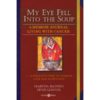Journal writing is a close cousin to memoir writing, but like all cousins, the two have many differences in their DNA make up.
Journal or diary?
The word journal is from the French jour (day) and ultimately from the Latin diu (daily). You can see that diu leads to our word diary also. In popular thinking a journal is perhaps perceived as more serious and lengthy and a diary is perhaps thought of as less serious, more about dates and appointments.
Why write a journal?
In this category, you will find posts that will help you define what writing a journal may mean for your memoir writing.
- Some people write journals to record life as the writer is living it and has lived it. A journal records details of the moment that otherwise slip away: conversations, feelings, descriptive scenes. This “record” journal emphasizes portraits, vignettes, and descriptions—all great to feed into memoir writing.
- A journal celebrates and gives honor to the life the writer has lived. This may contribute to the point of view you choose for your memoir.
- A writer may also want to alleviate pain and explore personal issues. Journal keeping can be used as a confidante. It is a book in which the writer pours out her soul. Her journal habit assures her near total privacy.That privacy depends on how carefully the journaler secures the journal and how respectful of the writer the people she lives with are. Studies show that sharing pain—even privately in writing—invariably leads to lessening it. You can support this cathartic role of journaling by writing portraits, vignettes, and descriptions that emphasize and explore your writer’s point of view, by free associations and other exercises that facilitate the expression of your writer’s unconscious.
- Some writers seek to bring closure to or to wrap up unresolved life experiences. Life does not always provide opportunities to bring an experience to conclusion. It may be possible to do so in a journal as the writer tries out imaginary endings to relationships, efforts, and experiences.
In conclusion
Writing in your journal regularly is a great way to stay in the memoir conversation.
_____________________

Another memoir finished: what was the writing process?
Writers can doubt their process. This is understandable as writing a memoir is a long undertaking that can—and usually does—have many discouraging moments.

You Don’t Have to Rush To Complete a Memoir
Writers will sometimes tell me that they are blocked and can’t seem to get back into writing. I have a surprising answer for them: don’t write just now to complete a memoir. It’s ok to be stalled for a while.
Let me give you a little scene in which I came to the viability of this conclusion.
One summer when I was serious about gardening, I went away on a late June trip. It was a fun vacation with my family, but the trip fell at a time when the garden seriously needed daily weeding, hoeing, and watering. As you can imagine, when I returned home, I found my garden overrun with weeds. The vegetables that I had so carefully planted were just about choked out, so I was, to say the least, challenged seeing the overgrown mess of weeds.
Rather than tackle the job immediately, however, which would certainly have been reasonable, I made a counter-intuitive decision: I spent time across several days just sitting on the edge of the garden, envisioning how I wanted the various parts to look once my work of cleaning up was done, imagining the lovely vegetables I would have.
Action will come.
[Free Membership required to read more. See below. ]
We'd love to have you access this content. It's in our members-only area, but you're in luck: becoming a member is easy and it's free.
Already a Member?
Not a Member Yet?

3 Benefits of Keeping a Journal
Journal Keeping Benefits
When keeping a journal—regular (even daily), some people feel a release of energy they don’t have in other writing forms. Because of that, journal keeping can be an important developmental experience for you both as a person and as a writer. Because the journal is private by definition, you can write in it without fear of how an audience might react. No one will ever see it. Not ever—unless you want them to!
Your journal is a kind of writing laboratory. Scientists use a laboratory to conduct experiments. They check what results from adding this to that, from changing relationships and quantities and sequences. Sometimes when the results are interesting and prove worth pursuing, they continue conducting experiments in similar areas, pairing these findings with those from other experiments.
[Free Membership required to read more. See below. ]
We'd love to have you access this content. It's in our members-only area, but you're in luck: becoming a member is easy and it's free.
Already a Member?
Not a Member Yet?

Journal Writing for the Memoir Writer
Journal Writing for the Memoir Writer
Journal writing is an effective practice for the memoir writer. It is a spontaneous and generally free-flowing activity and so can be very helpful to you in loosening up both your thinking and your writing type (the two usually go together). Your journal is an opportunity to bypass the familiar rules that govern much of the other forms of writing—especially the essay form. In the journal, whatever you write and however you write is ok. You don’t have to worry about form. For many writers—especially for new writers who are still caught in “the way it’s supposed to be written,” this is a great freedom! [Free Membership required to read more. See below. ]
We'd love to have you access this content. It's in our members-only area, but you're in luck: becoming a member is easy and it's free.
Already a Member?
Not a Member Yet?

What to Do to Stay in the Memoir-Writing Conversation—And Why it’s Important.
I read professional journals. Poets and Writers from cover to cover. I receive the Maine Writers and Publishers Alliance e-newsletter weekly. It’s a membership newsletter and comes chock full of news about what other writers are doing, readings schedules, and announcements of book publications. Do you have…

Telling the Children About Cancer
In this post, Martha writes about telling the children about cancer and her thoughts on being a mother.
[This is an excerpt from My Eye Fell Into the Soup, an account about cancer. The book is written in journal form—alternating between my entries and Martha’s. For more in the My Eye Fell Into the Soup series, Click Here]
November 12, 2006, Sunday
Martha wrote:
My days since Thursday have been about sleeping and talking and crying. Just four days ago, everything I thought about my life was different. How life seems changed even though it is not actually different in its essence from what it was on Wednesday. I had cancer then, too, but I did not know it consciously. I have always prided myself on being intuitive and having my intuition inform me. But, that somehow did not work in this case. Now Denis and I are conscious. And that changes everything. [Free Membership required to read more. See below. ]
